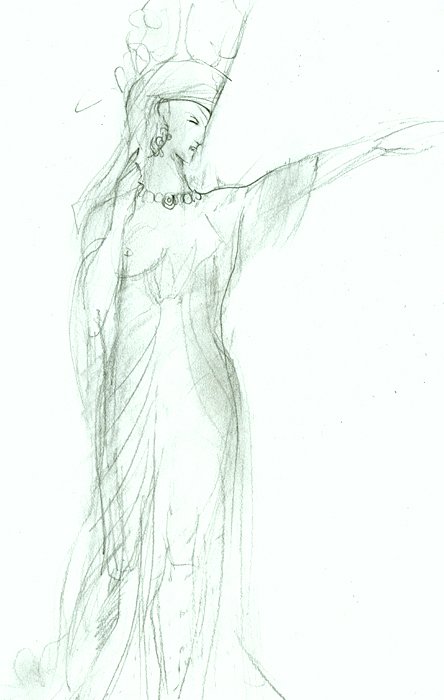ulysses, virgil, dante, descending into the underworld : beatrice, the exalted and angelic innocent : salome, the femme fatale : salome was originally victimized by herodias and biblically she was more complex than a noir femme fatale, but then she devolved when the story was simplified to portray her as just inexplicably sexual and evil : in the case of ulysses, his wife penelope was the innocent and victimized who remained home, while calypso was the femme fatale :
the currency (general use) is images, thought being motion, a thought being an image : to approach the creative process as though one had an infinite amount of time in which to complete the task ; impatience and insanity : each task is allowed to unfold in its own time : unfinished works and ideas that never come to fruition : a compilation of unfinished works :
sacrificial people . the sacrificial people who will bring us peace . the sacrificial people aren't sure what to do, that is the nature of their sacrifice, they aren't sure what to do because they are trapped, but they are not sacrificial in appearance and so they don't evoke the sympathy of other sacrificial people, and that is the exact nature of their sacrifice, they don't seem sacrificial at all, so they persist in quiet with no relief and no chance for escape . perhaps our dreams connect over time, above the misunderstandings of our lives
:
Roland Barthes: 'Technically, according to Roman Jakobson's definition, the "poetic" (i.e., the literary) designates that type of message which takes for object its own form, and not its contents. Ethically, it is solely by its passage through language that literature pursues the disturbance of the essential concepts of our culture, "reality" chief among them.' : earlier: 'One last feature unites science and literature, but this feature is also the one which divides them more certainly than any other difference: both are discourses (which was well expressed by the idea of ancient logos),' : In another essay from the same book, he outlines some principles of contemporary linguistics: '2. A second principle, especially important with regard to literature, is that language cannot be considered as a simple instrument—utilitarian or decorative—of thought. Man does not exist prior to language, either as a species or as an individual. We never encounter a state where man is separated from language, which he then elaborates in order to "express" what is happening within him: it is language which teaches the definition of man, not the contrary.' and '... 4. these few preliminaries are contained in a final proposition which justifies all semio-critical research. Culture increasingly appears to us as a general system of symbols, governed by the same operations: there is a unity of the symbolic field, and culture, in all its aspects, is a language. Hence, it is possible today to foresee the constitution of a unique sicence of culture, which will certainly be based on various disciplines, but all devoted to analyzing, at different levels of description, culture as language.' :
the 'fact' of 'evolution' senza tempo tinto: the misguidance of evolutionaries and non evolutionaries alike is the over investment in theta : without that aspect (of time) then evolution becomes a beautiful flat and static image: a blueprint of life without the nonsense, this lovely relaxed map, senza tempo tinto : ours is a feeble understanding and attempt : how they handle the suffering is what makes them angels of the odd or angels of the norm
